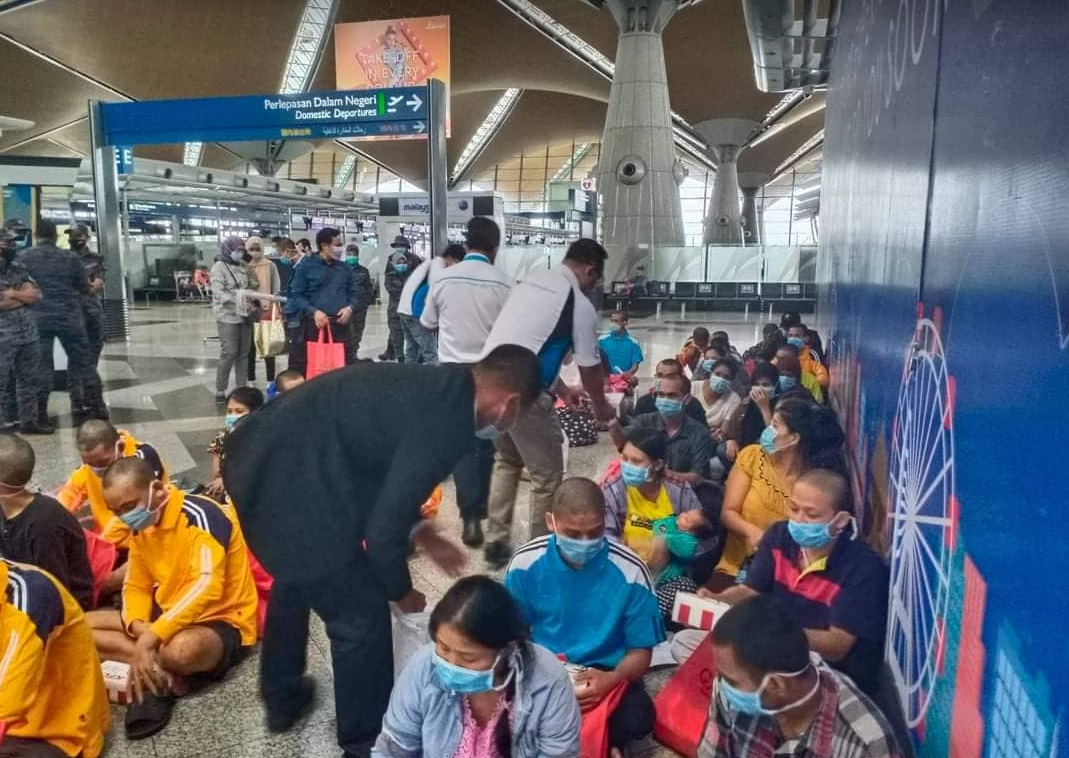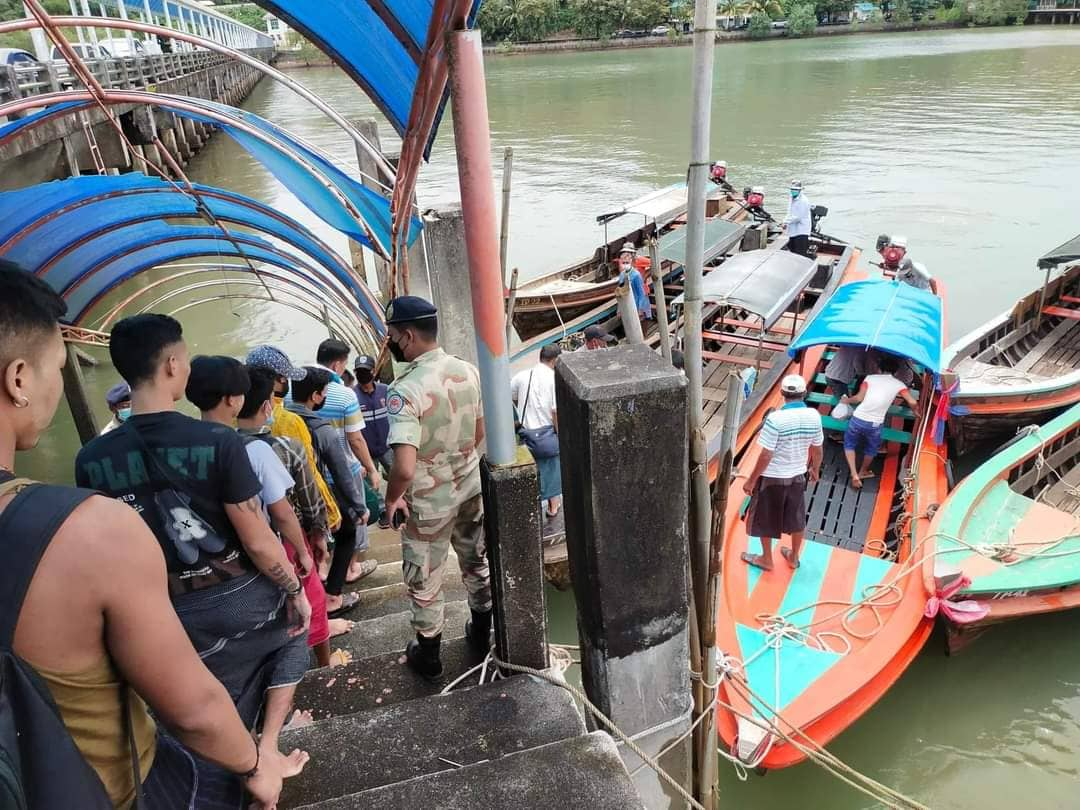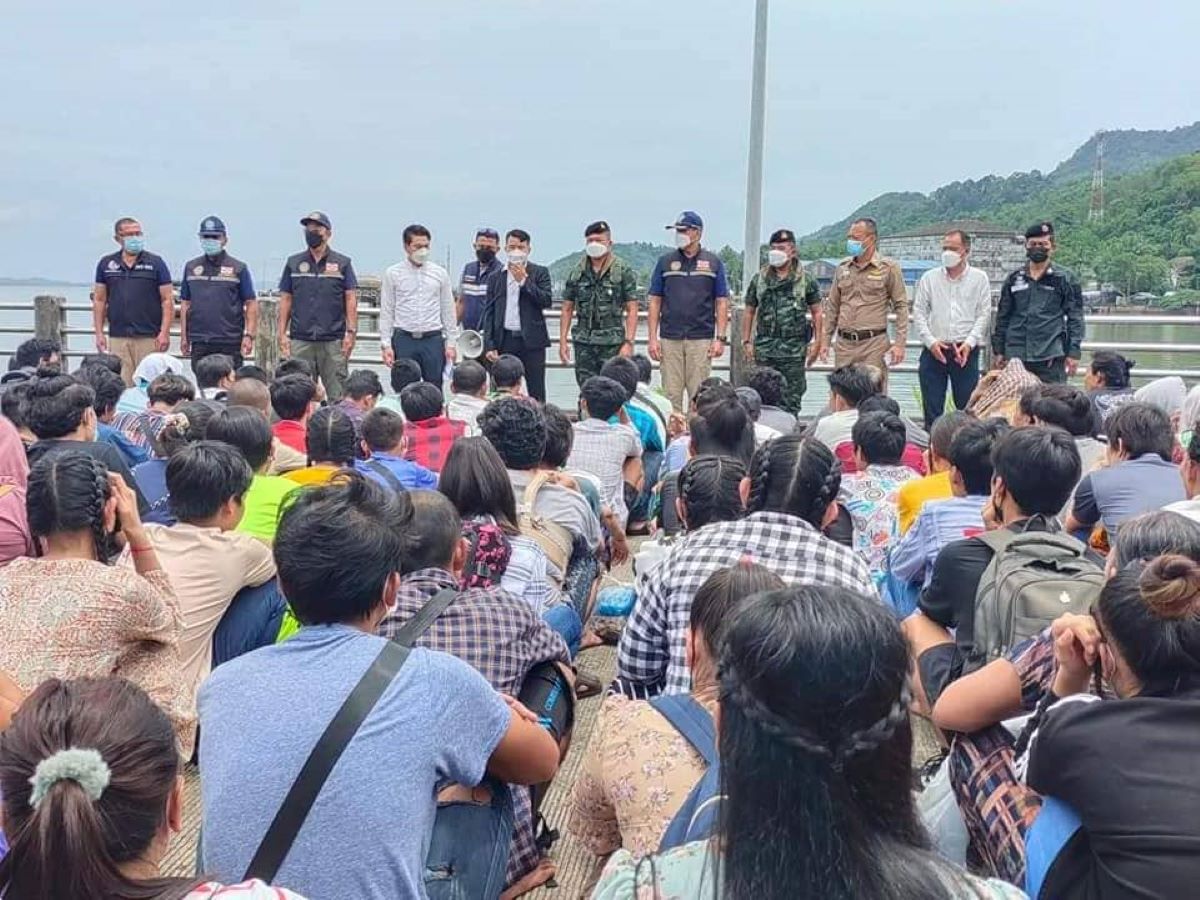CNI News
26 Oct 2022
Although the office of the United Nations High Commissioner for Refugee has called on neighbouring countries of Myanmar for an end to forced repatriation of Myanmar nationals, the calls have fallen on deaf ears, labour activists told the CNI.
Searches for and arrests of Myanmar nationals have been intensified in Thailand and Malaysia, where large numbers of Myanmar nationals are working or taking shelter. Some of detained Myanmar nationals were those who had applied for refugee cards from the UNHCR and were waiting to go to a third country, Labour Activist Ko Thar Gyi told the CNI.
He said, “As evidence for application for refugee cards and preparations for going to a third country, the UNHCR issued an A-4 paper stating a few links for them. However, those receipts are not enough. We cannot take them out by bribing. Officials from the UNHCR must come and call on authorities for their release. Officials from the UNHCR in Thailand rarely take such measures. This indicates that the UN cannot help people who took part in the civil disobedience movement and people who are waiting to go to a third country. We cannot blame the host country because authorities are required to detain all undocumented migrants according to their applicable laws. The UNHCR should question itself whether the A-4 paper they issued for refugees is really effective.”

Repatriated Myanmar nationals at a Malaysian airport.
The UNHCR called on neighbouring countries of Myanmar not to repatriate Myanmar nationals in their countries.
However, a large number of Myanmar migrants are being detained in camps and detention facilities. Among them were migrants who had already received or applied for refugee status. However, UN officials in Thailand rarely visit detention facilities for their release and many of them face forced repatriation, Ko Kyan Kyaung, an activist for Myanmar refugees in Malaysia, told the CNI.
He said, “The UNHCR does not have much leverage in Malaysia to seek help from lawyers and courts. The UN office has rarely offered assistance for people in camps and detention facilities. It does not have a mandate to help people in camps and the Malaysian government is mainly responsible for them. So, authorities repatriate in accordance with the Malaysian immigration law because they cannot hold them in camps for a long time. The government will continue to repatriate them because UNHCR officials rarely visit the camps.”

Myanmar nationals being repatriated.
The UNHCR should take effective measures on the ground rather than issuing statements, Executive Director U Htoo Chit of the Foundation for Education and Development told the CNI.
He said, “The UNHCR should take effective measures rather than issuing statements and should regularly visit Thai immigration detention facilities. Repatriating illegal workers causes no problem. If migrants who took part in the civil disobedience movement were repatriated, their lives would be in danger. The UNHCR has given emergency phone numbers. However, no one answered the phones. If the UNHCR holds negotiations with Thai authorities, they are likely to take the requests seriously. So, I think the UNHCR should hold negotiations with Thai authorities properly.”
Currently, crackdowns on illegal Myanmar migrants have been intensified and they are arrested on a daily basis in neighbouring Thailand and Malaysia.
Therefore, undocumented Myanmar nationals should be aware of the situation at worksites as well as outside workplaces.
As searches for and arrests of illegal migrants, those who intend to sneak into the neighbouring countries should not come at the moment, activists urged.




